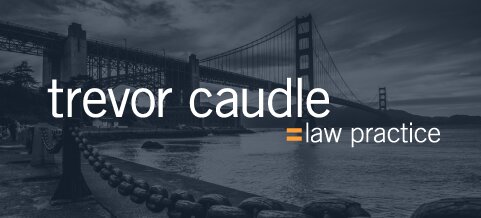Best Class Action Lawyers in San Francisco
Share your needs with us, get contacted by law firms.
Free. Takes 2 min.
List of the best lawyers in San Francisco, United States
About Class Action Law in San Francisco, United States:
A class-action lawsuit occurs when a large group of people, known as the "class", who have suffered similar harm join together to sue an alleged wrongdoer. In San Francisco, these lawsuits can be brought in a federal or state court, and cover a range of issues such as consumer fraud, product liability, negligence, and employment law. Class action law provides an advantage by combining many similar legal issues into one case, saving time and resources and providing a common remedy for all affected parties.
Why You May Need a Lawyer:
Class action lawsuits can be complex. You may not know your rights or the appropriate procedures to follow. A lawyer can guide you through the process, assess the merits of your case, and represent your best interests. Key situations when you might need a lawyer include when dealing with deceptive practices from a company, if you're a part of a large group harmed by a defective product, or if you and your coworkers experienced maltreatment on the job.
Local Laws Overview:
In San Francisco, the local laws are based on California's legal framework. Notably, the California Consumers Legal Remedies Act is a consumer protection law that allows consumers to pursue class action lawsuits for unfair or deceptive practices. Also, the Unfair Competition Law prohibits any unfair, unlawful, or fraudulent business acts or practices. Additionally, California's Code of Civil Procedure sets out rules for filing and conducting class action lawsuits.
Frequently Asked Questions:
What is the process of filing a class action lawsuit?
Class action processes can be guided under the assistance of legal representation. Petitioners must prove their case meets certain criteria to be recognized as a class action. The decision of certification is made by the court.
Do I need to join a class-action lawsuit if I'm part of the 'class'?
No, you can choose not to participate in the lawsuit by "opting out". This reserves your right to file an individual lawsuit if you so choose.
What if the class action lawsuit is unsuccessful?
If a class action lawsuit fails, members of the class may be barred from filing individual claims on the same fact pattern. Consult with your lawyer to understand the potential outcomes.
Will I need to pay legal fees?
In most instances, class action attorneys are paid on a contingency basis, which means they're paid a percentage of the settlement or judgment if successful.
How much could I potentially receive from a class action settlement?
Settlement amounts can vary greatly and depend on numerous factors such as the strength of the case, the number of class members, and the monetary damage that occurred.
Additional Resources:
The Federal Trade Commission provides helpful resources for those affected by deceptive business practices. Additionally, the official website of the State of California has comprehensive information on consumer protection laws.
Next Steps:
If you believe you need to pursue a class-action lawsuit or you are a part of one, it's advisable to seek legal counsel. The State Bar of California offers resources to find local attorneys specialized in class action law. Ensure you gather all relevant documentation in anticipation of your first meeting with your lawyer.
Lawzana helps you find the best lawyers and law firms in San Francisco through a curated and pre-screened list of qualified legal professionals. Our platform offers rankings and detailed profiles of attorneys and law firms, allowing you to compare based on practice areas, including Class Action, experience, and client feedback.
Each profile includes a description of the firm's areas of practice, client reviews, team members and partners, year of establishment, spoken languages, office locations, contact information, social media presence, and any published articles or resources. Most firms on our platform speak English and are experienced in both local and international legal matters.
Get a quote from top-rated law firms in San Francisco, United States — quickly, securely, and without unnecessary hassle.
Disclaimer:
The information provided on this page is for general informational purposes only and does not constitute legal advice. While we strive to ensure the accuracy and relevance of the content, legal information may change over time, and interpretations of the law can vary. You should always consult with a qualified legal professional for advice specific to your situation.
We disclaim all liability for actions taken or not taken based on the content of this page. If you believe any information is incorrect or outdated, please contact us, and we will review and update it where appropriate.















